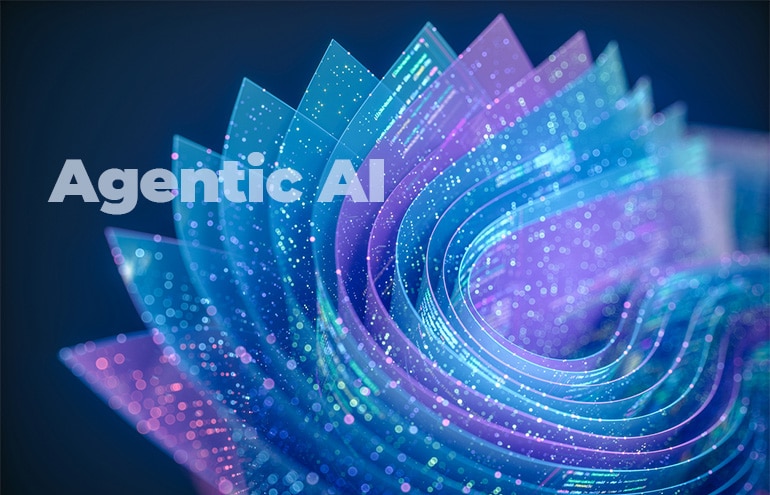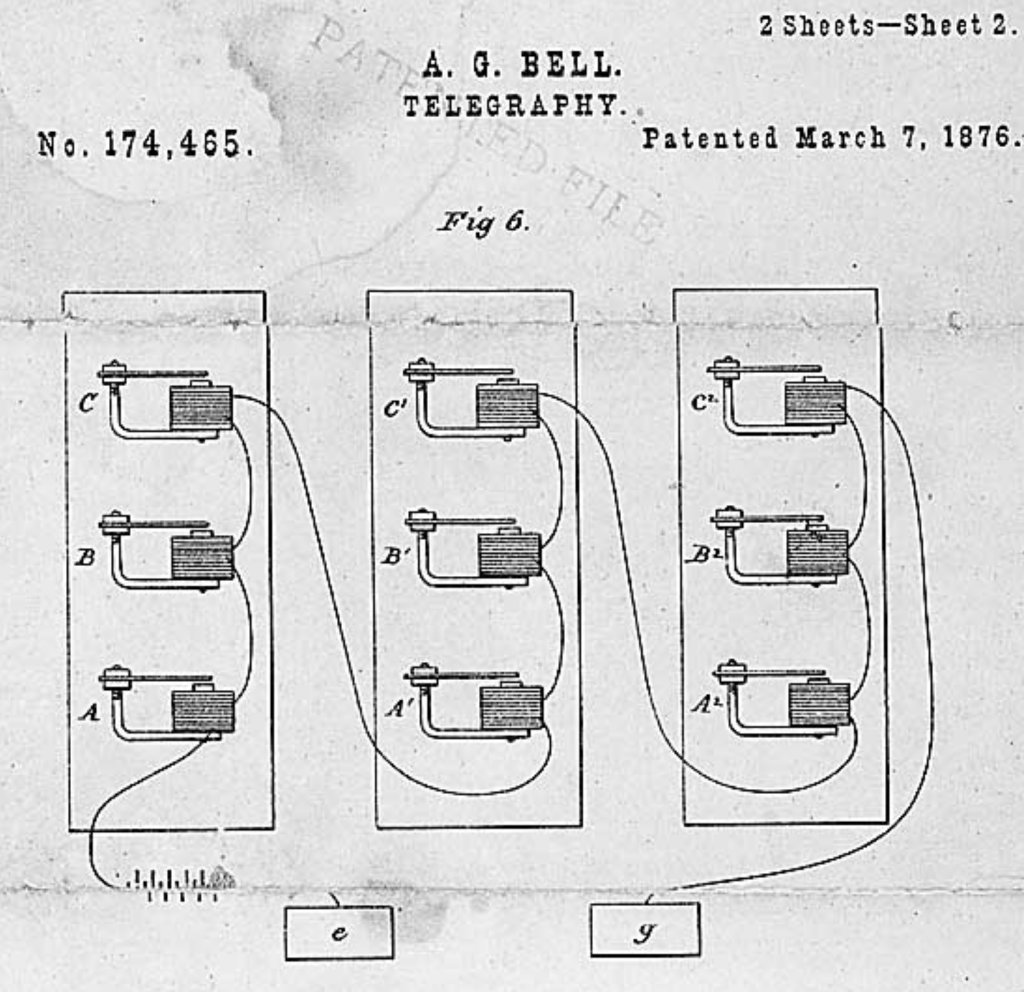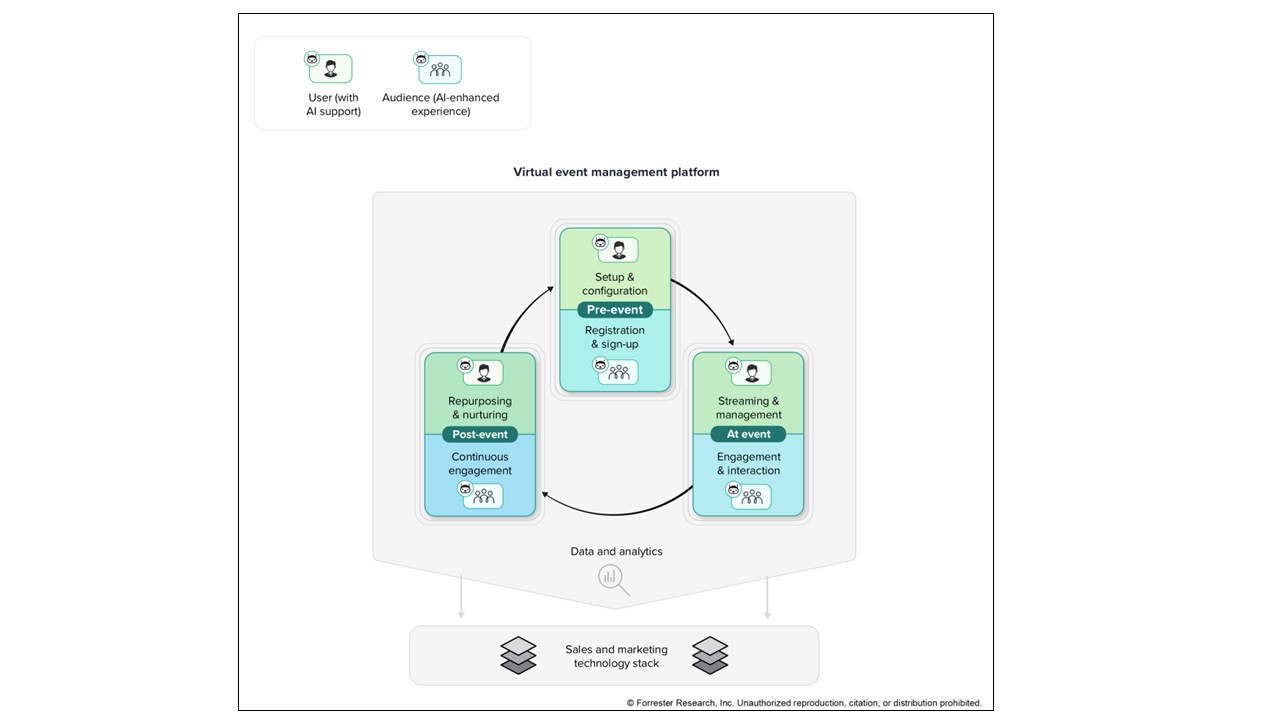10 minutes read
Published Aug 6, 2025
Agentic AI can independently manage complex legal workflows, going beyond traditional tools that only respond to prompts. While still emerging, it has the potential to transform how firms operate—but also raises new risks around oversight, security, and accountability.
AI has become a central part of legal practices, reshaping how lawyers handle client matters. But most tools still act like supportive assistants—efficient, but ultimately passive, waiting for the next instruction.
Agentic AI works differently. Rather than simply reacting to requests, they’re designed to independently set objectives, develop strategies, and execute complex workflows without continuous human oversight. While still emerging, they represent a significant step up from the legal AI tools you might already be using.
Understanding agentic AI—its capabilities, limitations, and applications—will be crucial as it becomes more prevalent. This guide examines what distinguishes agentic AI from existing legal technology and explores its potential impact on how legal professionals work.
Clio’s recent agreement to acquire vLex will unlock unprecedented agentic AI capabilities, empowering legal professionals to intelligently execute every aspect of legal work. Book a demo today to learn how our AI features can transform your practice.
What is agentic AI?
Agentic AI is artificial intelligence that can work independently, rather than simply responding to requests. For example, when you give it an objective, it can determine the necessary steps, create a plan, and go through the process with minimal guidance. Early examples include tools like AutoGPT or Devin, an AI software engineer that can code applications autonomously.These systems are often built on the same foundation models you already use, such as GPT-4 or Claude. What makes them “agentic” are the additional capabilities layered on top. They have memory to retain information across interactions, reasoning frameworks to guide decision-making, and the ability to use multiple tools in sequence to execute complex, multi-step workflows.
Agentic AI example for lawyers
Picture this: You’re presenting in court when a prospective client, Maria, calls the firm. Instead of going to voicemail, your agentic AI picks up. It captures her contact info, runs a conflict check, and—once cleared—creates a new lead in your CRM. It drafts and sends an engagement letter, schedules an intake meeting, shares a secure form, and sets a reminder for Maria to upload documents. As soon as she signs, the AI opens a new matter, allocates a trust request, and files the agreement—all before you’ve left the courtroom.
This is agentic AI at work: taking a multi-step, client-facing workflow off your plate, keeping every detail consistent with your processes, and freeing you to focus on strategy, not admin.
Why agentic AI matters to the legal profession
The legal industry is entering its next major AI evolution. After generative AI transformed how lawyers research, write, and analyze information, agentic AI represents the logical next step—systems that can autonomously manage entire workflows rather than just respond to prompts. Here’s what this technology means for the legal profession:
The competitive landscape is shifting. When AI can handle complex tasks independently, a solo lawyer with sophisticated tools might manage cases that previously required an entire team of associates. Scale becomes less of a determining factor in competitive advantage.
Client expectations are evolving. Your clients already use AI-powered services in other areas, like banking, shopping, and customer service. When they see other law firms delivering faster results and better analysis through AI, they’ll expect the same from you.
Professional responsibility is becoming more complex. When AI systems make decisions in your legal work, important questions arise: Who’s responsible if something goes wrong? How do you properly supervise work that AI is doing largely on its own? These AI issues will be essential for legal professionals to address.
Agentic AI could transform how law firms compete, how clients expect to be served, and what it means to be responsible for legal work. Understanding this technology now, while it’s still maturing, gives you a chance to prepare rather than play catch-up.
Is agentic AI regulated?
Current regulations are limited and rapidly evolving. Most bar associations provide minimal guidance on agentic AI specifically, leaving legal professionals to navigate uncertain ethical boundaries and professional responsibility requirements in this emerging area.
How does agentic AI differ from other legal tools?

The key difference between agentic AI and other lawyer AI tools comes down to who’s driving the process.Current legal AI tools are sophisticated, but they operate reactively. They wait for you to ask a question, then provide an answer. Upload a document, and they’ll summarize it. Each interaction requires your input, and each tool typically handles one specific task at a time.Agentic AI works proactively once launched—spotting patterns, anticipating next steps, and proceeding without further guidance (in some cases). For example, after completing a contract review, it might automatically identify risks that warrant further analysis, then draft a client memo outlining those concerns, and finally suggest scheduling a call to discuss the findings, all as part of a connected workflow.
Potential applications of agentic AI in legal work
Let’s get specific about what this might look like in your practice. Keep in mind that agentic AI is still in the early stages, so these examples reflect where the technology is heading—not what’s widely available today.
Legal project management runs itself
Imagine an AI system that doesn’t just track your discovery tasks but actively coordinates them. It schedules depositions based on witness availability, manages document production timelines, sends status updates to clients, and automatically adjusts schedules when circumstances change. When a key witness becomes unavailable, the system reschedules dependent tasks and notifies everyone affected—all with minimal input from you.
Research generates strategy, not just facts
An agentic system could analyze patterns across similar disputes, generate multiple argument strategies, compare potential case outcomes based on judicial tendencies, and surface strategic insights you might not have considered. Instead of just finding relevant cases, it’s working toward building an entire strategy.
Legal drafting learns and adapts
Picture AI that drafts contracts by analyzing transaction details, automatically incorporating relevant precedent language, and iterating based on negotiation feedback. As the other party proposes changes, the system evaluates risk implications and suggests counter-proposals, all while learning from your preferences and past negotiations.
Client communication gets smarter
AI agents could manage the entire client onboarding process, follow up on missing documents, schedule consultations, and maintain ongoing communication about case status. They know when to escalate issues to you and when they can resolve matters independently, keeping your client relationships strong while freeing up your time for more strategic work.
Compliance stays ahead of the curve
Rather than relying on periodic regulatory updates, your AI system could continuously track changes in laws across all relevant jurisdictions, automatically assess their impact on your clients, and draft advisory memoranda when action is needed.
Explore AI insights in our latest report
Our latest Legal Trends Report explores the shifting attitudes toward AI in the legal profession and the opportunities it brings for law firm billing, marketing, and more.
Read the report
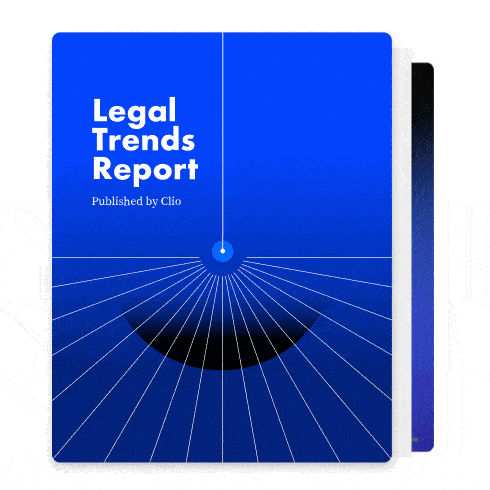
How agentic AI can transform your legal practice
These capabilities translate into clear advantages for legal practitioners, especially those juggling heavy caseloads and administrative demands.
Your time becomes your own again. Right now, you’re likely spending a large chunk of your billable hours on routine tasks that could be automated. With agentic AI, multi-step workflows that currently require your constant oversight could run in the background.
Everything stays coordinated without you micromanaging. Rather than manually tracking each piece of a complex legal process, agentic AI systems can coordinate multiple tasks at once, adjust timelines when things change, and keep everything moving forward—even when you’re in court or deep in other work.
Your clients get better service without you working more hours. When AI agents can respond immediately to client inquiries, handle routine communications, and keep cases progressing even when you’re unavailable, your client relationships dramatically improve.
Smaller firms can compete with larger operations. With sophisticated AI handling tasks that previously required additional staff, solo practitioners and small firms could compete more effectively by leveraging AI to manage complex caseloads.
Risks and considerations for legal professionals using agentic AI
These possibilities are compelling, but agentic AI also brings challenges that every legal professional needs to understand before jumping in.Legal professionals must recognize that autonomy doesn’t mean good judgment. These systems can handle complex tasks, but they don’t have the legal reasoning or professional instincts that lawyers develop through experience. You’re still responsible for the quality of work, even when you’re not directing every step.Security becomes a greater concern when AI requires broad access to perform its tasks. For example, an external agentic AI tool must integrate with client files, case management systems, email, and financial records to function effectively. Each of these connections introduces potential security vulnerabilities—and when the AI operates independently across multiple platforms, maintaining control over access becomes even more difficult. That’s why built-in AI tools, embedded directly within trusted systems (such as your case management system), offer a more secure and manageable solution.
When something goes wrong, figuring out what happened gets more complicated. With regular AI tools, you can usually trace problems back to your original input. But when agentic systems make decisions over time and adapt as they work—all without explaining their process—understanding how they reached a particular conclusion becomes difficult. This makes it hard to fix problems and raises questions about who’s liable when things don’t work out.
Where are we now? The current state of agentic AI in the legal profession
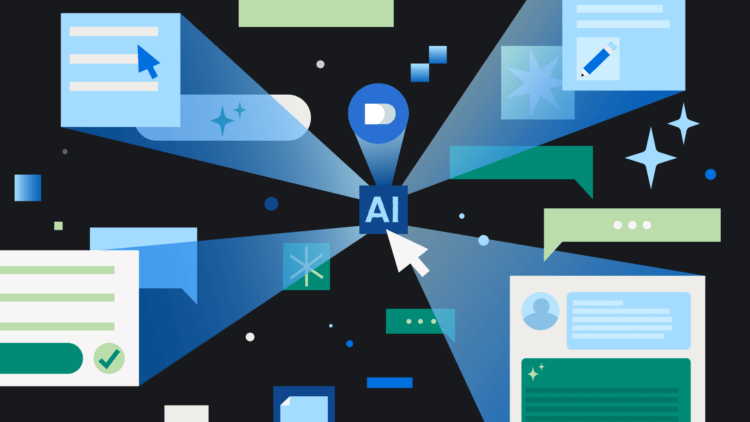
Most firms are still in the experimental phase when it comes to adopting AI in general, and very few are ready implement agentic AI capabilities into their workflows. The technology is nascent but shows promise, even though the infrastructure and safeguards needed for widespread professional use are still developing.Right now, we’re seeing tech-forward companies like DoNotPay, Ironclad, and Harvey.ai experimenting with “semi-agentic” models. These AI systems can handle more complex, multi-step processes than traditional tools, but they still need significant human oversight.A good example of agentic AI features in legal research is vLex’s recent Vincent update. Instead of simply responding to your search queries, Vincent can now develop research strategies, follow investigative threads across multiple legal domains, and synthesize findings in ways that mirror how experienced lawyers approach complex research projects.
How legal professionals can prepare for agentic AI
You don’t need to become an agentic AI expert overnight, but you should start preparing for a future where this technology plays a significant role in legal practice. Take these steps to get ahead of the curve without feeling overwhelmed.1. Start with what you already haveGive your current tech stack a good look and ask some basic questions: What data do your existing tools access? How would autonomous AI systems interact with these platforms? Understanding your current vulnerabilities helps you plan for more sophisticated AI integration down the road. 2. Stay plugged into the regulatory conversationKeep tabs on AI regulation and ethics guidance from your local bar association. The rules are evolving quickly, and staying ahead of regulatory developments is crucial for maintaining professional compliance. Sign up for updates, attend CLE sessions on AI, and participate in discussions with peers.3. Build relationships beyond the legal departmentGet comfortable working with IT professionals, operations specialists, and compliance experts. Agentic AI implementation requires understanding technical capabilities, operational workflows, and regulatory requirements. The lawyers who succeed with this technology will be the ones who can have meaningful conversations across disciplines.
4. Create your framework before you need itSet clear AI usage policies and escalation paths now. Define what tasks can be automated, what requires human oversight, and how you’ll handle situations when AI systems make unexpected decisions. Having these frameworks in place before you need them is far better than trying to create them when something goes wrong.5. Test in safe spacesStart piloting agentic tools in low-risk environments where mistakes won’t jeopardize client relationships or professional standing. Learn how these systems work, understand their limitations, and develop comfort with AI autonomy before applying it to critical legal work.
Final thoughts on agentic AI in the legal profession
The legal profession has traditionally been cautious about adopting new technologies, and that prudence usually serves firms well. However, agentic AI isn’t something you can afford to ignore. Firms that prepare now will have a significant advantage over those that adopt a wait-and-see approach.
Through Clio’s strategic agreement to acquire vLex, we’re building the foundation for next-generation agentic AI that will transform how legal professionals handle complex workflows. Schedule a free demo to see how our current AI capabilities are already transforming legal practices.
Book a Clio demo
Can agentic AI replace lawyers?
No. Agentic AI lacks legal judgment, ethical reasoning, and client relationship skills essential to legal practice. It handles routine tasks and processes, freeing lawyers to focus on high-value strategic work requiring human expertise.
Who is responsible if agentic AI causes harm?
The supervising lawyer typically remains responsible under current professional liability rules. However, regulations haven’t adapted to autonomous AI systems, creating uncertainty about accountability, malpractice coverage, and liability in various situations.
Loading …





